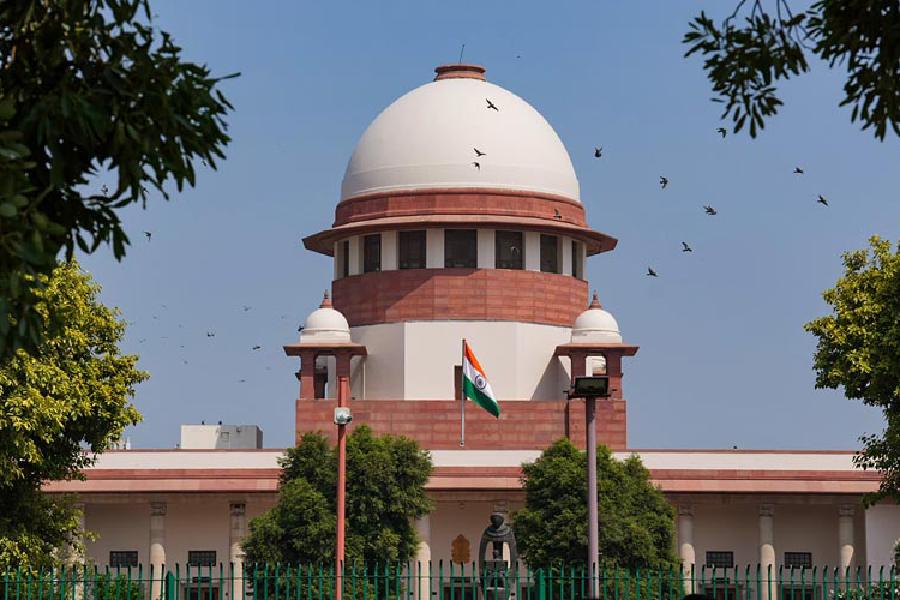The Supreme Court functioned as usual on Monday, when most central government institutions observed a half-day holiday in view of the Pran Pratistha ceremony in Ayodhya.
All 16 benches, led by Chief Justice of India (CJI) D.Y. Chandrachud, continued sessions until 4.30pm — 30 minutes beyond the standard 4pm closing time. The CJI’s court held regular proceedings.
Earlier, the Bar Council of India and Supreme Court Bar Association president Adish C. Aggarwala had requested a holiday for the Supreme Court, but Justice Chandrachud reportedly declined the plea. Justice Chandrachud, previously part of the constitution bench that overturned Allahabad High Court’s trisection of the disputed land on November 19, 2019, was part of the unanimous 2019 verdict confirming Hindu ownership of the land, leading to the formal consecration ceremony at the Ram temple.
TN order
Justice Sanjiv Khanna and Justice Dipankar Datta directed the Tamil Nadu government to ensure legal permission for processions, pujas and ceremonies related to the consecration ceremony. The order followed a complaint by a local BJP leader, Vinoj P. Selvan, alleging a ban on festivities by the state.
The Supreme Court expressed dissatisfaction with the reported blanket restrictions imposed by Tamil Nadu police, emphasising that religious activities could only be restricted in the case of genuine law and order concerns.
Solicitor-general Tushar Mehta, representing the Union government, supported the petitioner, asserting that such broad directives should not have been issued by the state. The bench, headed by Justice Khanna, criticised the rejection of permission based on the religious composition of certain areas and emphasised that applications should not be rejected arbitrarily. “If there is any law-and-order situation, the application (permission for procession) may be rejected. But this is not
the way…,” Justice Khanna observed.










